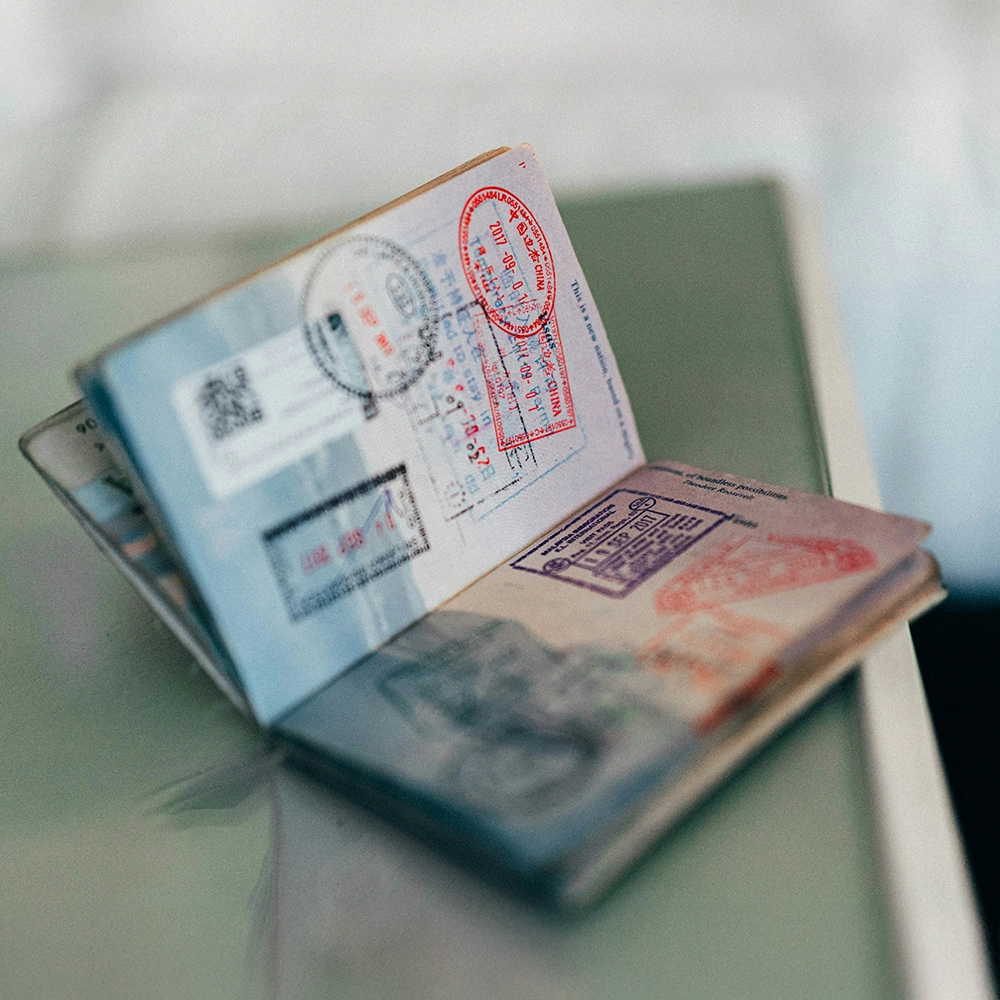One of the lengthiest processes of pre-travel prep is getting your documentation in order. When you travel internationally, you need a passport, maybe a visa or other authorization, and perhaps proof of travel insurance and vaccinations. But what if it all didn’t have to be so complicated? When it comes to visas, there’s an easier way.
What Are the Different Types of Travel Visas?
There are many types of visas, but regardless of the type, they’re all intended to give you legal entrance to and travel within another country. Visa types can also be broken into two categories: reason for entry (such as for business purposes, tourism, as a temporary worker, etc.) and method of obtaining a visa.
For our purposes here, we’re focusing on the different methods. Common types of travel visas include:
- Embassy visa: So-called because you have to go to the embassy with the required documents to apply. This is the traditional, paper version.
- eVisa: An eVisa is like an embassy visa but applied for online. They are typically limited to travel for tourism.
- Visa on arrival: Also called a border gate visa, you can get this type of visa at the border as you enter a country. You will still be required to provide documentation and pay a fee. Like an eVisa, they’re typically only issued to those traveling for tourism.
Different countries may require you to apply for a visa in a certain way. For example, as of August 2025, India issues eVisas to citizens of many countries, including the United States. Thailand, however, offers a visa on arrival for many nationalities.
An eTA, also known as Electronic Travel Authorization, and ETIAS, European Travel Information and Authorisation System, are not the same thing as a visa. Visas generally guarantee that you can enter a country, and while an eTA or ETIAS may be required to travel to a country, it does not necessarily guarantee that you will be admitted. Just because a country is listed as “visa-free” or mentions a “visa waiver,” doesn’t mean you don’t need any documentation at all. You may still be required to have some kind of travel authorization.
Research travel requirements in advance of your departure so that your trip doesn’t end because of a simple administrative error.
What Is an eVisa?
An eVisa works in the same way as a traditional embassy visa, but you apply for one electronically rather than submitting physical paperwork. If you’re eligible for an eVisa, there are several benefits to using that method rather than going the traditional route.
Benefits of eVisas
- eVisas are often less expensive than embassy visas.
- Applying for an eVisa is quicker than applying for a traditional visa. An eVisa can often be processed in a matter of days, while traditional visas can take weeks (or even months).
- Traditional visas often require you to visit an embassy in person. Depending on where the embassy or consulate is and where you live, that might not be possible.
- When applying for a traditional visa, you often have to submit your passport, which means mailing this valuable document with your application. An eVisa removes this need, meaning no more passports lost in the mail.
- With an eVisa, you can often track your application online, receiving timely notifications if information is missing or if there is some delay in processing.
- In most cases, you don’t ever need to print anything off, including the eVisa, before you travel.
How Do I Know If I Need a Travel Visa?
Whether you need an eVisa or other documentation can depend on several things:
- Your country of residence
- Your destination country (or countries)
- The reason for your travel
- How long you plan to stay in the country
If you visit the embassy website of your destination country, it’s generally very clear what type of visa, if any, is required.
How to Get an eVisa
One of the easiest ways to obtain an eVisa is to apply through your destination’s embassy website. There are also companies like sherpa that will collect the information required by the destination government and submit the eVisa application on your behalf. This can be particularly helpful if you’re traveling to multiple countries that require separate visas.
If you are unable to apply for an eVisa, you’ll need to contact your destination country’s embassy. They will provide specific information for how to apply for entry to their country.
How Much Is an eVisa?
How much an eVisa costs will depend on your country of residence and your destination. Some destinations have a reciprocal agreement with other countries so that there is no cost for a visa. However, some countries charge as little as $10 for a visa while others charge into the hundreds of dollars.
Pay attention to whether the eVisa and its cost covers one or multiple countries, and one or multiple entries. For example, some visas are considered invalid once you leave the country, regardless of how much time remains on it.
Travel Insurance for Visas and eVisas
Some visas, like a Schengen visa in Europe, require proof of travel medical insurance. Not having that insurance could result in you not being issued a visa, incurring a fine, or being turned away at the port of entry.
Seven Corners can help you choose the right coverage for your own piece of mind and to meet your destination’s entry requirements. Be prepared. Talk to our licensed agents or get a quick quote for travel insurance online today.



